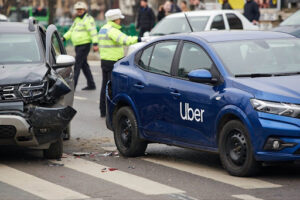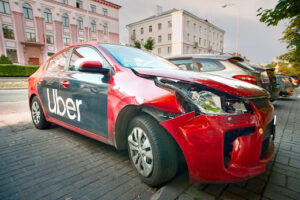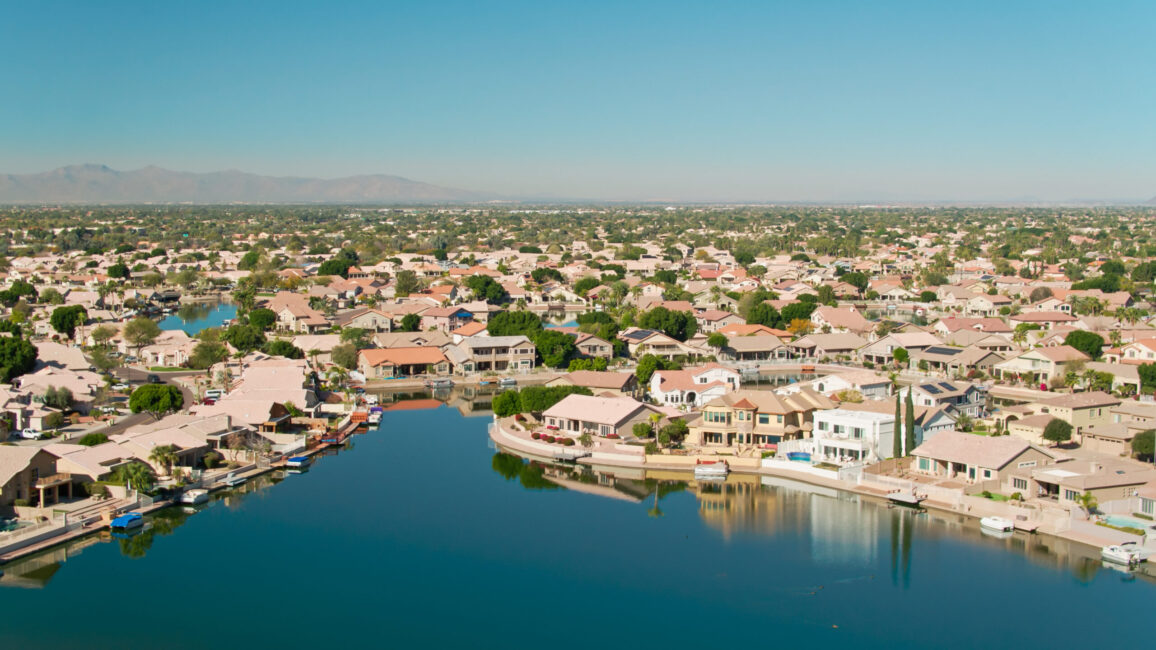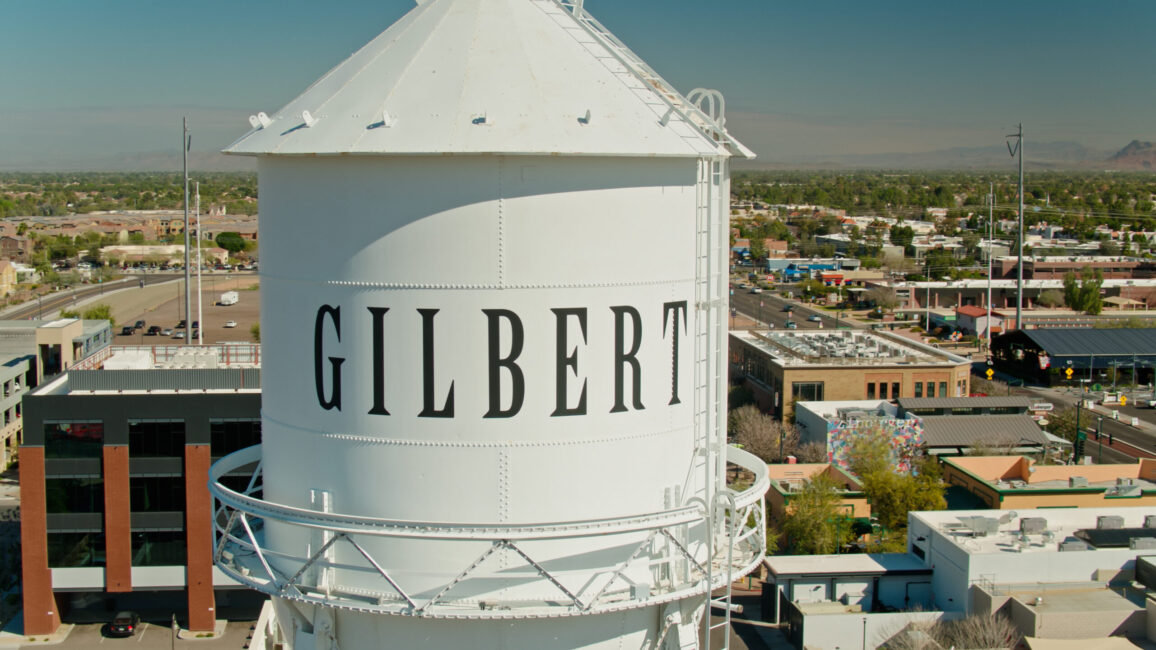Ridesharing services have innovated the way we travel, offering an affordable and convenient alternative to traditional taxis. However, the growing popularity of companies like Uber and Lyft has led to an inevitable rise in ridesharing accidents, resulting in injuries to passengers, drivers, and even third parties such as pedestrians and cyclists. In these cases, it is crucial to enlist the help of an Uber accident lawyer.
A Lyft & Uber accident lawyer from Phoenix Accident and Injury Law Firm helps you navigate the complex legal landscape surrounding rideshare accidents. It can be daunting, especially when it comes to determining liability and seeking compensation for injuries sustained.
Understanding the key aspects of rideshare accidents and your rights as an affected individual is necessary to facilitate the recovery process, both physically and financially. It is essential to recognize that even though you are riding in someone else’s vehicle, you still have rights and protections in place. These rights extend to situations where a rideshare driver is at fault, as well as those where another driver caused the accident. In either case, with the help of an Uber accident lawyer, you may qualify for compensation for your injuries and damages.
Navigating Lyft and Uber Car Accidents
As ridesharing services disrupt traditional transportation methods, new legal challenges have emerged. Ridesharing companies operate under unique regulations and insurance policies, which can often complicate accident liability and claims. Unlike taxi services, ridesharing drivers are not officially considered employees of the company they drive for; instead, they are independent contractors, adding to the complexity surrounding liability in ridesharing accidents.
Understanding Rideshare Insurance Policies
When dealing with insurance coverage in ridesharing accidents, such as those involving Uber or Lyft, it’s crucial to understand how both the driver’s insurance and the ridesharing company’s insurance policies interact. For effective legal support, an Uber accident lawyer can help navigate these complexities. Ridesharing companies like Uber and Lyft usually have a three-stage insurance policy:
- Offline or “App Off”: When the ridesharing driver is not using the app, only their auto insurance applies. In this situation, consulting with an Uber accident lawyer can be advantageous in ensuring that your rights are protected under personal insurance.
- App Activated, No Ride Accepted: If the driver is logged into the app but hasn’t yet accepted a ride request, the rideshare company’s limited liability coverage becomes active. An experienced Lyft accident lawyer can assist you in understanding the extent of this coverage and how it may impact your claim.
- Ride Accepted: Once the driver accepts a request for a ride and is on the way to pick up or drop off a passenger, the rideshare company’s commercial insurance policy provides more comprehensive coverage. In these cases, having a skilled Uber accident lawyer beside you can make a significant difference in managing and securing your claim.
It’s essential to be aware that the rideshare company’s insurance coverage may not always take precedence immediately, mainly if the driver’s insurance offers broader coverage. Consulting with an Uber accident lawyer can help clarify these issues and ensure you receive the compensation you deserve.
Liability and Who Pays in Rideshare Accidents
So, who covers the damages in a ridesharing accident? According to our Uber accident lawyer, the answer depends on the specifics of the situation. If another driver is at fault for the accident, you would typically pursue a claim through that driver’s insurance, similar to a standard car accident claim.
However, if the Uber or Lyft driver is responsible for the crash, the process can become more complex. Initially, you’ll need to file a claim with the Uber or Lyft driver’s personal car insurance policy. This step can be challenging, especially if the driver does not meet the Uber or Lyft driver requirements for ridesharing insurance. If the driver lacks proper coverage or their policy is insufficient, their insurer may deny your claim or only provide limited compensation based on the policy limits.
If you encounter difficulties with this route and don’t receive adequate compensation, your next step should be to consult an Uber accident lawyer. These legal experts from Phoenix Accident and Injury Law Firm can help you navigate the difficulties of seeking compensation from Uber’s or Lyft’s company insurance policies, which may become an option after you have exhausted other avenues.
Uber and Lyft Crash Statistics
Recent statistics reveal that Uber serves approximately 93 million users and processes over 1.4 billion rides each quarter. The company reports that around 90 percent of accidents involving Uber vehicles occur in densely populated urban areas, such as Phoenix.
Uber also states that about 100 fatal accidents occur annually involving their vehicles, with nearly 60 percent of victims being third parties. The remaining fatalities are evenly distributed between Uber drivers and passengers.
Lyft, with a smaller market share, has over 20 million riders annually. According to their most recent accident report, Lyft recorded 49 motor vehicle fatalities.
While Uber and Lyft conduct background checks and continuously monitor their drivers for criminal activity and unsafe driving behaviors, there is ongoing debate about the adequacy of their screening processes. In light of these concerns, if you are involved in an accident with an Uber or Lyft vehicle, consulting an Uber accident lawyer can be crucial. An experienced lawyer can help you navigate the complexities of these cases, ensure a thorough investigation, and seek the compensation you deserve for any damages or injuries incurred.
Immediate Steps After an Uber or Lyft Accident
To protect your rights and ensure you a successful claim for damages after a rideshare accident, follow these crucial steps:
- Seek Medical Attention: Prioritize immediate medical evaluation, even if your injuries seem minor. A professional assessment is essential for identifying any hidden injuries or delayed symptoms.
- Report the Accident: Notify the rideshare company about the accident as soon as possible. Prompt reporting helps document the incident and ensures the company is aware of the situation.
By following these steps, you’ll be well-prepared to address the challenges of a rideshare accident and pursue a fair settlement.
Critical Actions to Protect Your Rights
Contact an Attorney: Engage with an experienced Uber accident lawyer to navigate the difficulties of your rideshare accident claim. These legal professionals can give you valuable guidance and help you secure the compensation you deserve. Consult with a qualified Uber accident attorney to discuss your case and explore your options.
Collecting Essential Information at the Scene
Collect Information: Gather vital details such as the rideshare driver’s name, contact information, vehicle make and model, and license plate number. If other drivers are involved, obtain their information as well. Additionally, take photographs of the accident scene and any visible injuries. Your Uber accident lawyer will be thankful for this information.
Keep Records: Document all related expenses and losses, including property damage, lost wages, and medical bills. Maintain detailed records of your injuries, treatments, and the overall impact on your life to support your claim. This information will help your Uber accident lawyer build your case.
Common Causes and Scenarios of Rideshare Accidents
According to our Uber accident lawyer, common causes of Uber and Lyft crashes often mirror those of typical car accidents: distracted driving, speeding, failure to obey traffic laws, and driving under the influence (DUI). However, Uber and Lyft accidents can also stem from unique issues related to ride-sharing services.
Racing: In Arizona, Uber accidents can sometimes occur when drivers compete against each other. This racing behavior involves high-speed driving and disregarding traffic laws, which can lead to severe accidents. The intense competition among drivers to pick up more rides may result in reckless driving and unsafe parking, increasing the risk of collisions.
Lack of Training or Experience: While Uber and Lyft have specific requirements for drivers, such as minimum driving experience, these only sometimes ensure a driver’s proficiency or suitability for the job. Inexperienced drivers or those needing more training may need help in busy or complex driving environments, increasing the likelihood of accidents. If you find yourself in an accident involving a driver who seems inadequately trained, consulting an Uber accident lawyer might be necessary to address any legal issues and pursue compensation.
Lack of Vehicle Maintenance: Uber vehicle requirements mandate that cars must be in good condition, but ongoing maintenance is the driver’s responsibility. Failure to maintain the vehicle can lead to breakdowns or malfunctions that endanger everyone on the road. For instance, if a car’s brakes fail unexpectedly, it poses a severe risk. Although ride-sharing companies offer insurance, coverage might not always be sufficient. In such cases, an Uber accident lawyer can assist you in determining liability and seeking appropriate compensation.
Driving While Fatigued: Fatigue impairs driving ability and can be as dangerous as other forms of impaired driving. Whether due to a sleep disorder or extended work hours, driving while drowsy significantly increases the risk of accidents. Research shows that nearly 20% of car collisions can be due to driver fatigue. If you’re involved in an accident with a fatigued Uber or Lyft driver, consulting an Uber accident lawyer may be crucial for navigating your claim and obtaining justice.
Where Do Most Uber Accidents Occur in Phoenix?
Phoenix, a bustling metropolitan area, experiences a significant number of motor vehicle accidents annually. In 2021, the city reported 40,833 total accidents, resulting in nearly 11,000 injuries and 278 fatalities.
In Phoenix, Uber accidents often occur on high-traffic roads and busy intersections. Interstate 10 is a frequent site of accidents, both during rush hour in the downtown area and in the suburban regions to the east and west of the city. Other notable areas with a high incidence of accidents include:
- 59th avenue
- Tatum Boulevard
- Seventh Street/Seventh Avenue
- Indian School Road and the intersection with 75th Avenue
- Camelback Road and 16th Street
- Southern Avenue and 19th Avenue
Additionally, many Uber accidents happen downtown, particularly on one-way streets. Drivers unfamiliar with Phoenix may miss one-way signs and inadvertently make wrong turns, increasing the risk of severe head-on collisions.
If you’re involved in an Uber accident in Phoenix, consulting with an experienced Uber accident lawyer from Phoenix Accident and Injury Law Firm can provide you with the legal support you need and secure the compensation you deserve.
Understanding Compensation in Rideshare Accidents
Types of Damages You Can Claim
An Uber accident lawyer can assist you in getting fair compensation for both economic and non-economic damages resulting from rideshare accidents. Financial losses include medical bills, lost wages, and future medical expenses. Non-economic damages can encompass emotional distress and mental health issues such as anxiety or PTSD. By working with a skilled Uber accident lawyer, you can ensure that all aspects of your suffering and financial impact are addressed and that you receive the compensation you deserve.
Legal Representation for Rideshare Accident Victims
Phoenix Accident and Injury Law Firm has a long-standing reputation for providing effective representation to injured individuals throughout Phoenix and Arizona, securing substantial compensation for our clients.
How Our Attorneys Can Help You
If you suffered a rideshare accident and want to present a claim as you seek legal representation, consider the following aspects of our firm, particularly as an Uber accidents lawyer offers:
- Specialized Knowledge in Uber Accidents: Our firm possesses a deep understanding of the rideshare industry and is well-versed in when Lyft or Uber could be legally accountable for accidents involving their drivers. As a dedicated Uber accident lawyer, we leverage this expertise to hold these companies accountable.
- Trial Experience: We are fearless in taking your case to court if necessary. Our trial experience as an Uber accident lawyer ensures that we are prepared to fight for the best possible outcome and secure justice for you.
- Focused Practice in Personal Injury and Wrongful Death: We have spent years specializing in Plaintiffs’ Personal Injury and Wrongful Death law, both in Phoenix and across Arizona. Our focus on these areas makes us well-equipped to handle your Uber accident claim effectively.
- Reputation for Excellency: Our personal injury lawyers are recognized for their excellence, professionalism, and commitment to clients. As an Uber accident lawyer, we take a proactive approach to your case, striving to achieve the maximum financial recovery possible for you.
Taking On Insurance Companies and Rideshare Corporations
Contact us today for a free consultation and to discuss how our experienced Uber accident lawyer can help you navigate your rideshare accident claim and obtain the compensation you deserve.
Why Choose Our Phoenix Lyft and Uber Accident Lawyer?
Client Testimonials
⭐⭐⭐⭐⭐
“I had a good experience with Phoenix accident and injury law firm. I was afraid at first to get a lawyer because of my past experiences. But they put me at ease, and they kept me up to date with everything. They care about their clients. If you have a question, they’re there to answer it. If you have concerns, they’re there to listen.”
Contact Our Expert Rideshare Accident Lawyers Today
If you’ve been involved in an Uber or Lyft accident in Phoenix, don’t hesitate to reach out to the Phoenix Accident and Injury Law Firm, conveniently located in nearby Chandler, AZ. Schedule your free consultation with one of our skilled Lyft and Uber accident lawyer today. Our dedicated team of attorneys is committed to providing expert legal guidance and supporting you every step of the way.
We proudly serve clients throughout the Phoenix area, including Chandler, Gilbert, Mesa, Scottsdale, Tempe, and Peoria. Contact us now to discuss your case and discover how we can assist you with no initial cost. Your path to justice starts here—call us today or visit our website to get started!















